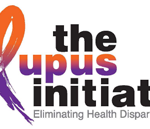In this sampling of studies and resources devoted to addressing health disparities, we see how deeply entrenched these disparities are in the U.S. healthcare system, and the ongoing need to address not only what many see as a societal wrong but what is also an unsustainable extra cost to an already overburdened healthcare system. As noted in the KFF report, roughly 30% of total direct medical costs for minorities (i.e., blacks, native Americans, Hispanics and Asians) are excess costs caused by health inequities.6
Moving beyond study and rhetoric to action that can reduce and remove these racial disparities is becoming all the more imperative given the rapidly changing demographics of the U.S., which is becoming more racially and ethnically diverse. Currently, nearly four in 10 (38%) of persons living in the U.S. are people of color. By 2045, people of color are projected to comprise more than 50% of the population, with the largest growth in Hispanics.6
To contribute to the ongoing effort to help reduce racial health disparities, the ACR has undertaken a number of initiatives over the past several years.
Addressing Racial Disparities in Rheumatology

Dr. Lim
S. Sam Lim, MD, MPH, clinical director in the Division of Rheumatology at Emory University in Atlanta and the chair of a working group within the ACR assembled to advance health equity and eliminate health disparities in rheumatology, is particularly plugged into the issue of racial disparities in rheumatology. Looking at the issue broadly, he emphasizes that the factors that contribute to racial/ethnic health disparities in rheumatology are fundamentally the same as those found in other fields, including complex and interrelated biological, behavioral, provider, healthcare system, societal and environmental factors.
“In many of the complex, systemic conditions rheumatologists treat, most of these factors are amplified,” he says, citing as an example the “particularly profound” gender and racial disparities in SLE.
Saying he thinks rheumatologists “work hard every day to mitigate various factors that contribute to disparities in care and outcomes” and are taking tangible steps to reduce disparities, he nonetheless believes “many need and seek additional steps they can take and resources available to them, their staff and their patients.”
One such resource is a new initiative the ACR calls Uniting Collaborators for Innovation (UCOIN). The ACR developed UCOIN as a way for members to generate, design and implement projects or to assist in ongoing projects to advance the mission of the ACR. Members are encouraged to use UCOIN as a platform to submit ideas and work with other members to collectively solve problems affecting the practice of rheumatology and the care of patients.


